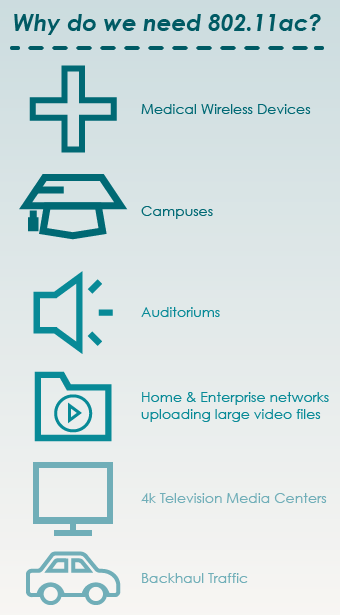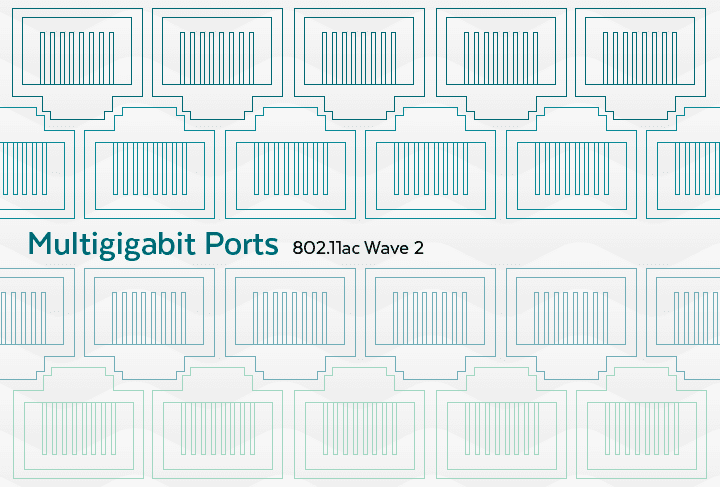 As 802.11ac Wave 2 Wireless Access Points (WAPs) are starting to hit the market and manufacturers are scrambling to fill a market need for multigigabit Ethernet.
As 802.11ac Wave 2 Wireless Access Points (WAPs) are starting to hit the market and manufacturers are scrambling to fill a market need for multigigabit Ethernet.
The second iteration of the 802.11ac wi-fi standard can reach wireless speeds of up to 7Gbps in laboratory settings, an upgrade that makes Wave 1’s 1.3Gbps seem paltry.
To receive the full benefits of the upgrade, the speed boost will require network administrators to upgrade their cabling—an investment that not all network administrators are ready to make.
To facilitate this transition, some manufacturers have started to respond with switches that support multigigabit speeds of 1, 2.5G, 5G, and even 10G via existing Cat5/Cat6 cabling. These multigigabit ports will decrease upgrading costs, especially in large-scale networks.
Bleeding Edge Technology or Timely Solution?
These multigigabit Ethernet solutions have been created before the official finalization of the 2.5G and 5G Ethernet standard and until then, should be considered proprietary technology. Proprietary technology does not always guarantee compatibility and interoperability with other brands. The NBASE-T and MG-BASE-T Alliances, the two alliances responsible for spearheading the standardization of 2.5G and 5G Ethernet, have successfully recruited several manufacturers. Though their press release indicates that they are working towards the same end goal—accelerating the deployment of 2.5/5 G—their lack of collaboration hints that they are producing two competing market solutions.
Nonetheless, networking solutions such as these are filling a market need that will accelerate the adoption of 802.11ac Wave 2 wireless access points. These cost-effective solutions will eliminate the need to re-wire a network, making ultra-fast wireless speeds more obtainable. Manufacturers are expecting residential consumers and the education sector to embrace the second phase of the 802.11ac standard at a much more rapid rate than enterprise.
Don’t forget to follow us on Facebook, Twitter, and Linkedin for the latest news in the computer networking industry.


